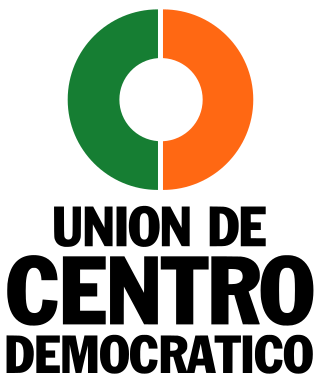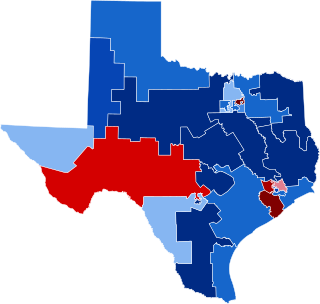 |
|---|
|
The Campania regional election of 1980 took place on 8 June 1980.

 |
|---|
|
The Campania regional election of 1980 took place on 8 June 1980.

Christian Democracy was by far the largest party, while the Italian Communist Party came distantly second. After the election, Christian Democrat Emilio De Feo was elected President of the Region. In 1983 De Feo was replaced by fellow Christian Democrat Antonio Fantini.
 | |||
|---|---|---|---|
| Parties | votes | votes (%) | seats |
| Christian Democracy | 1,174,943 | 39.0 | 25 |
| Italian Communist Party | 726,007 | 24.1 | 15 |
| Italian Socialist Party | 377,581 | 12.5 | 7 |
| Italian Social Movement | 339,993 | 11.3 | 7 |
| Italian Democratic Socialist Party | 187,781 | 6.2 | 3 |
| Italian Republican Party | 90,206 | 3.0 | 1 |
| Italian Liberal Party | 51,600 | 1.7 | 1 |
| Proletarian Democracy | 33,163 | 1.1 | 1 |
| Proletarian Unity Party | 30,693 | 1.0 | - |
| Revolutionary Socialist League | 1,651 | 0.1 | - |
| Total | 3,013,618 | 100.0 | 60 |
Source: Ministry of the Interior

Christian Democracy was a Christian democratic political party in Italy. The DC was founded on 15 December 1943 in the Italian Social Republic as the nominal successor of the Italian People's Party, which had the same symbol, a crusader shield. As a Catholic-inspired, centrist, catch-all party comprising both centre-right and centre-left political factions, the DC played a dominant role in the politics of Italy for fifty years, and had been part of the government from soon after its inception until its final demise on 16 January 1994 amid the Tangentopoli scandals. Christian Democrats led the Italian government continuously from 1946 until 1981. The party was nicknamed the "White Whale" due to its huge organisation and official colour. During its time in government, the Italian Communist Party was the largest opposition party.

The Christian Democrats is a Christian democratic political party in Sweden founded in March 1964. It first entered parliament in 1985, through electoral cooperation with the Centre Party; in 1991, the party won seats on its own. The party leader since 25 April 2015 has been Ebba Busch.

Heiner Geißler was a German politician with the Christian Democratic Union (CDU) party and a federal minister from 1982 to 1985.

The Christian Democratic Party is a Christian-democratic political party in Norway founded in 1933. The party is an observer member of the European People's Party (EPP). It currently holds three seats in the Parliament, having won 3.8% of the vote in the 2021 parliamentary election. The current leader of the party is Dag Inge Ulstein.

The Christian Democratic Party is a Christian democratic political party in Chile. There have been three Christian Democrat presidents in the past, Eduardo Frei Ruiz-Tagle, Patricio Aylwin, and Eduardo Frei Montalva.

The Concertación, officially the Concertación de Partidos por la Democracia, was a coalition of center-left political parties in Chile, founded in 1988. Presidential candidates under its banner won every election from when military rule ended in 1990 until the conservative candidate Sebastián Piñera won the Chilean presidential election in 2010. In 2013 it was replaced by New Majority coalition.

The Catholic People's Party was a Catholic Christian democratic political party in the Netherlands. The party was founded in 1945 as a continuation of the interwar Roman Catholic State Party, which was in turn a successor of the General League of Roman Catholic Caucuses. The party was in government throughout its existence. In 1977, a federation of parties including the Catholic People's Party, the Anti-Revolutionary Party (ARP) and the Christian Historical Union (CHU) ran together under the Christian Democratic Appeal (CDA) banner. The three participating parties formally dissolved to form the CDA in 1980.

The Union of the Democratic Centre was an electoral alliance, and later political party, in Spain, existing from 1977 to 1983. It was initially led by Adolfo Suárez (1932–2014).

The Italian Socialist Party was a social democratic and democratic socialist political party in Italy, whose history stretched for longer than a century, making it one of the longest-living parties of the country. Founded in Genoa in 1892, the PSI was from the beginning a big tent of Italy's political left and socialism, ranging from the revolutionary socialism of Andrea Costa to the Marxist-inspired reformist socialism of Filippo Turati and the anarchism of Anna Kuliscioff. Under Turati's leadership, the party was a frequent ally of the Italian Republican Party and the Italian Radical Party at the parliamentary level, while lately entering in dialogue with the remnants of the Historical Left and the Liberal Union during Giovanni Giolitti's governments to ensure representation for the labour movement and the working class. In the 1900s and 1910s, the PSI achieved significant electoral success, becoming Italy's first party in 1919 and during the country's Biennio Rosso in 1921, when it was victim of violent paramilitary activities from the far right, and was not able to move the country in the revolutionary direction it wanted.

The first Van Agt cabinet, also called the Van Agt–Wiegel cabinet was the executive branch of the Dutch Government from 19 December 1977 until 11 September 1981. The cabinet was formed by the christian-democratic Christian Democratic Appeal (CDA) and the conservative-liberal People's Party for Freedom and Democracy (VVD) after the election of 1977. The cabinet was a centre-right coalition and had a slim majority in the House of Representatives with Christian Democratic Leader Dries van Agt serving as Prime Minister. Liberal Leader Hans Wiegel served as Deputy Prime Minister and Minister of the Interior.

The 1983 Italian general election was held in Italy on 26 June 1983. The Pentapartito formula, the governative alliance between five centrist parties, caused unexpected problems to Christian Democracy. The alliance was fixed and universal, extended both to the national government and to the local administrations. Considering that the election result did no longer depend on the strength of the DC, but the strength of the entire Pentapartito, centrist electors began to look at the Christian Democratic vote as not necessary to prevent a Communist success. Moreover, voting for one of the four minor parties of the alliance was seen as a form of moderate protest against the government without giving advantages to the PCI. Other minor effects of this election were a reduction of the referendarian Radical Party and the appearance of some regional forces.

Javier Alonso Bedoya de Vivanco is a Peruvian lawyer and politician (PPC) and a former Congressman representing Lima between 2006 and 2016.

The Netherlands is a European Parliament constituency for elections in the European Union covering the member state of Netherlands. It is currently represented by 31 Members of the European Parliament. Until the 2009 European Parliament election, it excluded the Dutch in the Netherlands Antilles and Aruba.

The 1980 United States elections were held on Tuesday, November 4. Republican presidential nominee Ronald Reagan defeated incumbent Democratic President Jimmy Carter in a landslide. Republicans picked up seats in both chambers of Congress and won control of the Senate, though Democrats retained a majority in the House of Representatives. The election is sometimes referred to as part of the "Reagan Revolution", a conservative realignment in U.S. politics and marked the start of the Reagan Era.

The Sardinian regional election of 1979 took place on 17 June 1979.
The Pentapartito, commonly shortened to CAF, refers to the coalition government of five Italian political parties that formed between June 1981 and April 1991. The pro-European and Atlanticist coalition comprised the Christian Democracy (DC), the Italian Socialist Party (PSI), Italian Democratic Socialist Party (PSDI), Italian Liberal Party (PLI), and Italian Republican Party (PRI).

The 2019 European Parliament election in Germany was held on 26 May 2019, electing the 96 members of the national Germany constituency to the European Parliament. Both the CDU/CSU and SPD suffered major losses, while the Greens became the second largest party in a national-level election for the first time in German history.

The 1982 United States House of Representatives elections in Texas occurred on November 2, 1982, to elect the members of the state of Texas's delegation to the United States House of Representatives. Texas had twenty-seven seats in the House, up three from the 1970s, apportioned according to the 1980 United States census.

The Christian Democratic Party was a political party in Portugal officially founded on 13 February 1975 and extinguished on 20 August 2004. The party never made it to parliament. The weekly publication Presença Democrática was published by the party.